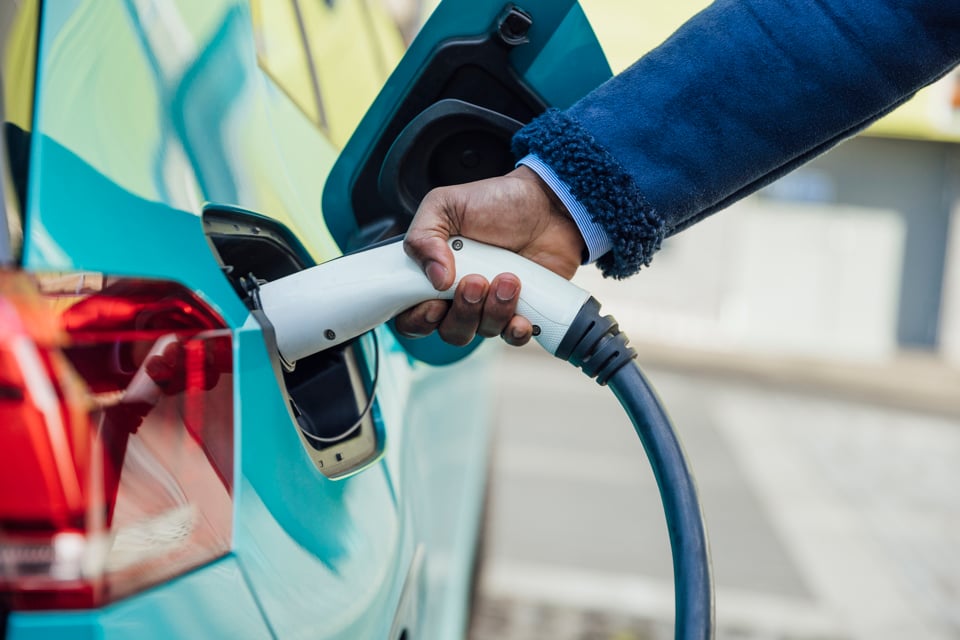Higher purchase costs, insufficient charging infrastructure and misinformation are a serious risk to electric vehicle (EV) adoption, a House of Lords committee is warning in a new report published today (Tuesday, February 6).
In its report; 'EV strategy: rapid recharge needed', the Environment and Climate Change Committee is calling on Government to introduce a range of measures to incentivise the switch to electric power.
This includes tackling the disparity in upfront costs between EVs and petrol and diesel cars and looking at targeted grants to incentivise the purchase of new electric cars.
After taking evidence from a wide range of witnesses, the committee also calls on the Government to explore options to incentivise second hand electric car sales, including developing a ‘battery health standard’.
Furthermore, it wants ministers to reform road tax to give a clear steer on future motoring costs; equalise VAT for charging by reducing the 20% VAT rate applied to public charging, to 5% in line with domestic electricity; and communicate a positive vision of the EV transition to consumers, and promoting comprehensive, clear and accurate information.
The Government acknowledged during the inquiry that it was concerned about misinformation, highlighting a “concerted campaign of misinformation” about EVs in recent months.
Richard Bruce, director of transport decarbonisation at the Department for Transport (DfT), told the committee: “I do think there has been an impact from a concerted campaign of misinformation over the last 14 months or so that has been pushing consistent myths about EVs that people absorb, and which is reflected in their appetite (for purchasing EVs).
“There is an anti-EV story in the papers almost every day. Sometimes there are many stories, almost all of which are based on misconceptions and mistruths, unfortunately.”
The committee is calling on ministers to take a more proactive and leading role in communicating a positive vision of the EV transition to consumers, and promoting comprehensive, clear, authoritative, accurate and balanced information.
It says that the Government should develop a communication strategy in collaboration with industry partners and consumer organisations to provide clear, authoritative and trustworthy information. This could build on previous successes such as the Go Ultra Low website.
Baroness Parminter, chair of the inquiry, said: “Surface transport is the UK’s highest emitting sector for CO2, with passenger cars responsible for over half those emissions.
“The evidence we received shows the Government must do more – and quickly – to get people to adopt EVs.
“If it fails to heed our recommendations the UK won’t reap the significant benefits of better air quality and will lag in the slow lane for tackling climate change.”
The committee also wants the Government to accelerate the rollout of the UK’s charging infrastructure by: extending Local Electric Vehicle Infrastructure (LEVI) funding for another three years; consulting on offering a ‘right to charge’ for tenants and leaseholders in multi-occupancy buildings; reviewing planning regulations to ensure that the rollout of EV infrastructure is not unduly delayed by out-dated regulation; and consulting on mandating workplaces with designated car parking spaces to install EV charge points.
The committee heard that lower benefit-in-kind (BIK) tax rates have been “the single most effective intervention to date” in incentivising the uptake of EVs.
The British Vehicle Rental and Leasing Association (BVRLA) says that 91% of new salary sacrifice cars in the first quarter of 2023 were battery electric vehicles (BEVs), while 43% of all new leased cars in the same period were fully electric.
The Electric Vehicle Association (EVA) England told the committee that salary sacrifice “remains the one existing Government policy that is having a positive impact on the uptake of EVs, and we have seen the increase in popularity of this option”.
James Court, chief executive of EVA England, said: "EVA England has been calling on the Government to improve both access to and infrastructure for EVs across the UK, and we are glad to see that today’s report shows we are being heard.
"It is essential that the Government legislate to tackle the disparity in cost between EVs and petrol cars, and that charge point infrastructure is fairly priced and easily accessible.
"The report makes strong policy recommendations to achieve both of these essential goals, and EVA England supports these and encourages the Government to implement without delay.”
The committee also received calls to extend salary sacrifice, for example by mandating companies with over 50 employees to offer the scheme.
It concluded that low BIK tax rates should be retained and the Government must plan for how they will be tapered and exited.
Quentin Willson, FairCharge founder, said: “FairCharge has been saying that the Government is falling behind on electrification, sending out mixed messages to consumers and not correcting the many myths and misinformation out there.
"With one million EVs now on our roads there are simple and relatively inexpensive levers that the Government can use to increase adoption further.
"An official battery state of health certificate on used EVs is a good idea as is cutting the 20% VAT on public charging to 5%. We need a government EV champion to spur on growth and investment before it’s too late.”
David Savage, vice president for the UK and Ireland at Geotab, welcomed the call for Government action on misinformation. "Media scaremongering does nothing to promote the widespread take up of electric vehicles," he said.
"The Government is simply not doing enough in terms of investment in EV charging infrastructure. This has been demonstrated by their inability to heed their own target of installing six or more rapid electric vehicle charging stations at every motorway service station by the end of 2023.
"We need these incentives not just to stimulate the UK’s position in this emerging sector, but to make a sustainable future a reality for us all."























Login to comment
Comments
No comments have been made yet.